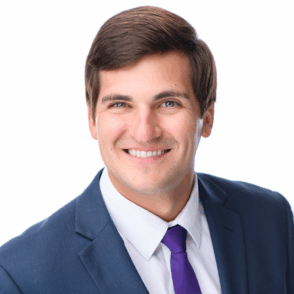From fundraisers and festivals to corporate gatherings and competitions, special events can present a wide and often unpredictable range of liability exposures. Such exposures can lead to significant financial losses if an event is not properly insured.
Special Events Insurance offers tailored protection to help event organizers manage the risk of bodily injuries, property damage, liquor-related incidents, and more, as well as meet venue or organizational coverage requirements. As the market for Special Events Insurance tightens, brokers must be increasingly strategic when assisting clients in this sector.
In this Ask the Expert Q&A, we spoke with Nick Caletri, Senior Underwriter, Commercial Insurance, Burns & Wilcox, New Orleans, Louisiana.
What is Special Events Insurance and who typically needs it?
NC: Special Events Insurance is a standalone policy that can be purchased to cover single- or multiple-day events. In my work in Louisiana, I handle coverage for a wide variety of special events — everything from fundraisers and festivals to parades, company picnics, golf tournaments, and more.
Many events are on the smaller side, such as fishing rodeos or prom after-parties, generally events with fewer than 1,000 attendees and lasting one to three days. Special Events Insurance can typically cover things like slip-and-fall accidents and assault and battery, but Liquor Liability coverage usually needs to be added separately.
Some event venues will require the host to purchase Special Events Insurance, and other times it is purchased when an organization’s board determines it is necessary. The event host is typically listed as the named insured, and both the venue and individual vendors may be added as additional insureds.
What are some of the most pressing exposures in this space?
NC: Slip-and-fall accidents are a significant risk for event organizers. Falls are the second leading cause of unintentional injury deaths worldwide, accounting for about 684,000 deaths annually, according to the World Health Organization. In addition, approximately 37.3 million non-fatal falls occur each year that require medical attention.
Liquor-related incidents are another pressing exposure. Special event risks also really depend on the type of event, as there are different hazard levels — for example, a dog show may be considered lower-risk than a rodeo or a flag football event, although coverage typically excludes injuries to event participants.
If you have a softball tournament and someone rounding a base tears their knee, that would generally be excluded, but there would usually be coverage for someone in the bleachers who falls on the steps.
How would you describe the current market for Special Events Insurance, and why is this class of business increasingly shifting to Excess & Surplus lines?
NC: The market for Special Events Insurance is definitely shrinking. We used to have a dozen markets interested in special events, but that changed significantly during the COVID-19 pandemic. Now, there are only a handful of carriers still willing to write this type of policy.
Serious incidents at special events, such as the crowd crush at a Travis Scott concert in 2021 that led to 10 deaths and hundreds of injuries, have also had an impact, leading some carriers to shy away from that type of risk. This all drives more of the business into the E&S space, where underwriters are better equipped to handle unique or higher-risk scenarios, and I have definitely seen more requests for Special Events Insurance cross my desk in recent years.
Outside of the larger concerts, smaller events rarely have a high claim loss frequency. My hope is that over the next couple of years, carriers will see that and open up more to allow these types of risks.
What can insurance brokers do to help clients secure coverage in today’s tightening market?
NC: The solution to help clients secure Special Events Insurance is to always get a supplemental form and gather as many details as possible. Document the protocols and procedures that are in place for all types of possible claims. For example, will the event have a medical tent? How many staff and volunteers will be present? These details are essential.
What are some common misconceptions about Special Events Insurance?
NC: Many policyholders do not realize that Liquor Liability is not automatically included in Special Events Insurance and needs to be specifically added. Another coverage that clients may not realize they need to request is Setup and Takedown Coverage. Oftentimes, organizers think the Special Events Insurance is just for the actual event itself, but it can also cover the day prior, putting everything together and taking everything down. If something happens during setup or takedown, there is no coverage if that is not added.
Coverage for rainouts or rescheduled events may also be available, but it typically must be added separately. If you do not work with an insurance broker who is experienced in Special Events Insurance, important coverages could get missed.
Why should brokers partner with Burns & Wilcox?
NC: Burns & Wilcox is well-positioned to support brokers with the right markets for Special Events Insurance. We have a wide range of General Liability (GL) Insurance markets, which allows us to provide multiple options tailored to fit different types of events and client needs. Rather than offering just one quote, we can typically present two or three options, depending on market appetite and the unique characteristics of the risk.
One of the key advantages of working with Burns & Wilcox is our ability to deliver both pricing and coverage options quickly. Special events often come together on short notice, so turnaround time is pivotal — and that is where we excel. We have experience with a wide variety of events from weddings to large concerts to colossal festivals, and we have strong relationships with those interested in writing in this space. All of our quotes are clear on pricing with no added fees, and they show the rating basis so there are no issues post-event. We pride ourselves on our responsive service, helping brokers meet tight deadlines while providing competitive pricing and clear explanations to help clients make informed decisions.
What tips do you have for brokers serving clients in this sector?
NC: To serve clients seeking Special Events Insurance, it is crucial to get as much information as you can. While it might feel tedious to ask so many questions, doing so not only streamlines the turnaround time but it also builds trust with carriers.
I always recommend requesting a completed supplemental application, along with materials like an event brochure or a detailed agenda. These documents provide a clearer picture of the event and allow underwriters to assess the risk more accurately. It also helps you, as the broker, better understand the event and prepares you for similar submissions in the future.
Special Events Insurance
WHY YOUR CLIENTS MIGHT NEED IT: Special events such as corporate outings and festivals often require Special Events Insurance, which helps protect hosts from liability during one-time or short-term events.
PROTECTS AGAINST: Financial loss due to third-party bodily injury or property damage claims.
EXPERT OPINION: “If you do not work with an insurance broker who is experienced in Special Events Insurance, important coverages could get missed.” –Nick Caletri, Burns & Wilcox





